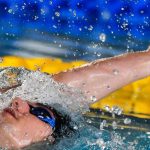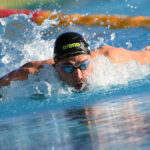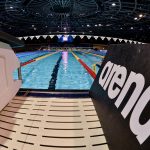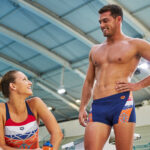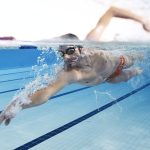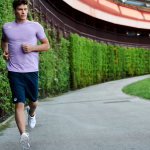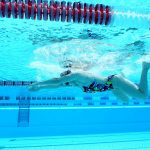Goal setting during lockdown
Lockdown has required a lot of swimmers to press ‘Pause’ on their athletic ambitions.
While training and competitions continue to be cancelled in many areas, setting realistic personal goals during lockdown has become increasingly difficult.
In order to help athletes navigate these rough waters, we turned to Health Psychology PhD candidate Bradley Crocker for his advice on goal setting. Below we share with you some of his insights.
Create a connection between your training and your goals
It’s easy to just mindlessly go through the motions of an exercise. This likely won’t lead to quality workouts, though, and it certainly won’t foster internal motivation. It’s therefore important to understand how your training is connected to a goal that you’ve set.
Say your objective during the pandemic is to be physically active in order to maintain a base level of fitness. Most forms of fitness will do the trick here, so you can get creative in finding fun activities that will get your heart rate up.
If you have instead decided (in cooperation with your coach) to strive for a more elite level of fitness over lockdown, then your remote training will need to be more rigorous. All workouts should be designed to nurture your development as an athlete, and you must understand how each exercise will transfer to progress in the water.
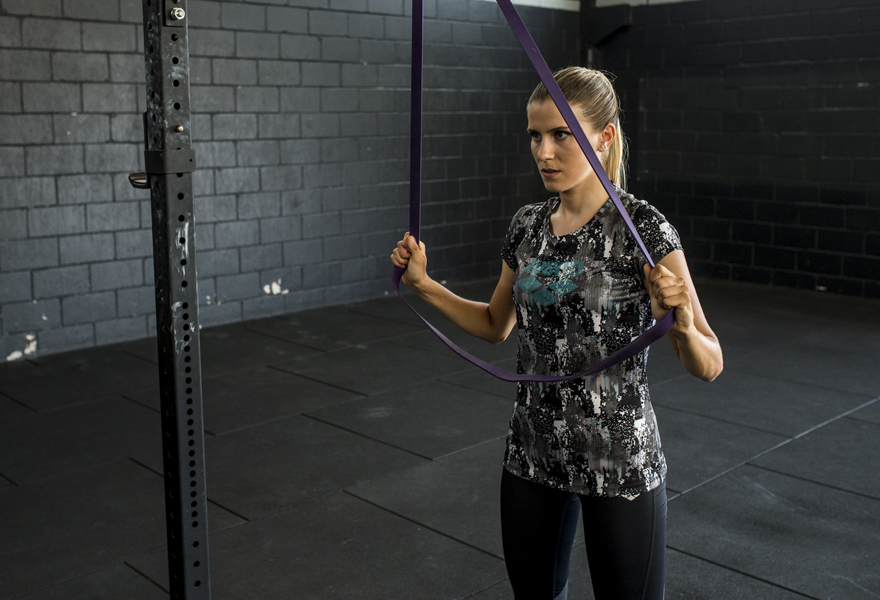
Feed your need for competence, autonomy, and relatedness
In the field of Psychology the Self Determination Theory describes three aspects that help to drive our motivations; autonomy, competence, and relatedness.
Autonomy is the need for agency. Collaborating with your coaches to create a personalized training plan is important to help make it feel voluntary. When you purposefully self-endorse a goal or schedule, this helps to make it feel within reach and in your control.
Competence describes the feeling of being optimally challenged by your training so that it takes you out of your comfort zone, but not so far out that you feel incapable of succeeding. Creating goals that strike the right balance between being too easy and too difficult to achieve is crucial in addressing your feelings of competence.
Relatedness refers to our desire to connect meaningfully with others. Surround yourself with others (even virtually!) who have similar goals, since this will help to create strong interpersonal bonds and foster unity amongst teammates.
Set goals that are measurable and are in your control
A growth mentality, or rather the willingness to focus on and celebrate incremental progress, is crucial during these uncertain times. Set goals that use tangible metrics to measure development. Timed challenges (ex: a timed mile run) or exercise progressions (ex: adding one push up each day until a predetermined goal) are good ways to be sure that you’re giving yourself progressive benchmarks to surpass.
These measurable goals should also be ones that are within your control. For instance, say you had the goal pre-pandemic of becoming more powerful in your dives and turns. These require the need to push off of a wall (a solid starting point), so jumping off of the ground will be a highly transferable skill.
Your goal could therefore be to jump higher, since this is something that is both in your control and is measurable. It is also working towards the more long-term goal of improved starts and turns.
Articles you may also like
Strengthen your swim stroke wherever you are: Burpees
4 activities to make remote group training more fun

Written by:
Bradley Crocker
Bradley Crocker is a current PhD student in the 'Theories and Interventions in Exercise and Health Psychology Lab' at McGill University in Montreal, Canada. Being a former nationally ranked swimmer himself, his research studies ways of driving student-athletes to engage in healthy behaviour. Though he has since retired from the sport, he applies his extensive knowledge of swimming to McGill University's men and women's varsity teams, where has acts as an assistant coach.
